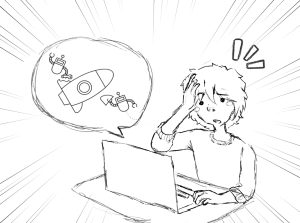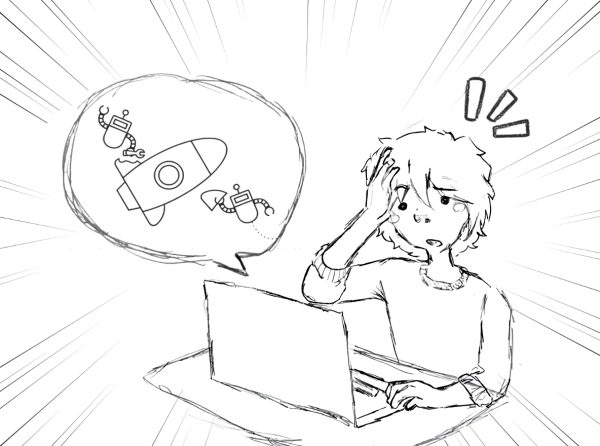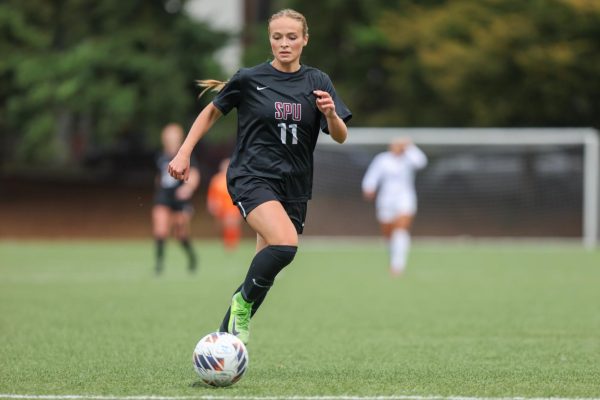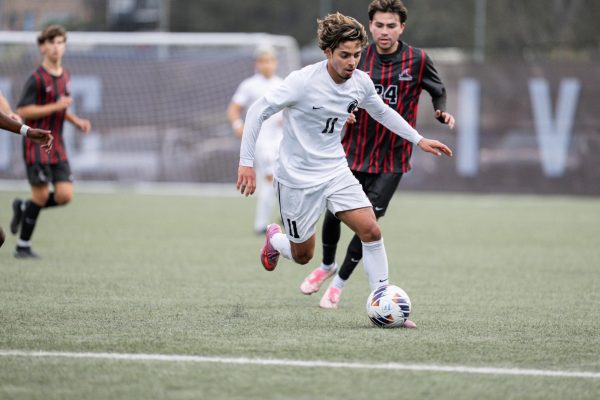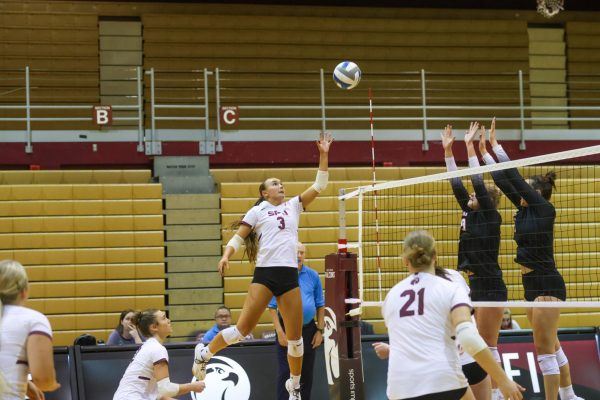Mind or matter?
SPU athletes scale mental walls, overcoming challenges
May 4, 2022
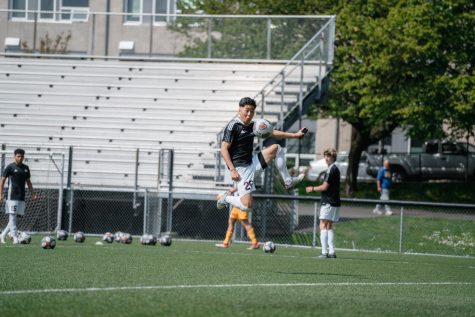
Being an athlete isn’t all about staying physically strong. Being able to run fast or hit with power is great, but an athlete’s mental state is just as important as their physical. Athletics involve responsibility, confidence and teamwork.
Overcoming a physical obstacle is easy for most athletes, but moving past a mental obstacle proves otherwise.
Freshman business administration major John Lo plays as a center midfielder for Seattle Pacific University’s soccer team. He explained that the two greatest obstacles he faces regularly are consistency and adversity.
“People go through rough patches and ups-and-downs, and I experienced one of those recently and had a couple practices, like two practices, where I didn’t play very well,” Lo said.
No athlete can be on the top of their game all the time. These occurrences are something nobody can control, so Lo chooses to focus on what he can control.
“We have principles in the way we play. I just choose to focus on a couple, meaning every single practice I tell myself, ‘Number one: concentrate, because there are things we need to be aware of. Number two: if you can do it in one, then do it in one, meaning one-touch passes and stuff like that and be on your toes all the time,’” Lo said.
Lo knows that he will have a good practice if he manages to do these two things, so recites them as “little reminders” before every practice to achieve consistency. In the face of adversity, his answer remains the same.
“What somebody says doesn’t necessarily control how you play. If you let it, it will, but if I don’t let it, then it won’t, so I just chose not to let it. I just like to focus on what I can control,” Lo said.
While it is always important to focus on one’s self, every athlete knows that they cannot accomplish things alone. Whether they play soccer, basketball, rugby, or even boxing, they are part of a team. As they learn to hone their abilities, they have to remember to always be there for their team, because their team is there when they need them.
Junior physiology major Jessica Vester is currently a first-year novice on the SPU rowing team. Despite being a novice, Vester has been moved from her usual position at bow seat to a coxswain in recent races. The pressures of this change have become Vester’s greatest challenge.
As the coxswain, Vester is at the helm and the lead of her boat. Her responsibilities are to help with practice plans, make calls during races, relay information from the coaches, and ensure the safety and participation of her teammates.
Being named coxswain of a boat is no different than being named captain. The coxswain decides where the ship steers and where to lead the team. The responsibility of leadership can feel like a heavy burden; however, Vester takes solace in the presence of her teammates and her family’s motto.
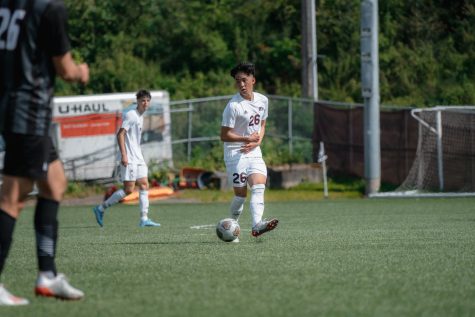
“Having my teammates around me and knowing I’m not only playing for myself, but I’m also doing it for them has helped. And my parents always instilled in me that Vesters don’t quit. We don’t give up,” Vester said.
Sometimes an athlete’s greatest challenges can sneak up on them. At first, it may not even seem like an issue at all. Once it’s made present, however, they can choose to be defeated by it or work alongside it.
Freshman psychology major Catherine Zheng has been dancing for most of her life, and she is currently a member of SPU’s Ante Up Dance Club. Zheng also has a unique and interesting obstacle to overcome.
As a child, Zheng suffered an injury that left her with nerve damage in her feet. This injury makes it difficult for Zheng to sense and control her movement below her knees.
“It makes it kind of difficult to do things, so I had to relearn how to walk around. Sometimes, I have stepped on my friend’s foot or accidentally kicked them without knowing,” Zheng said.
For a dancer, footwork is paramount. Nerve damage is something that would send most dancers on a downward spiral, but Zheng refused to be brought down by her injury.
“There were some things that I couldn’t do, but I still felt like I could do it. It kind of creates an excuse for myself, like I have a reason not to,” Zheng said. “I still try to. I know it’s very hard, and at this point, it’s almost impossible. It looks weird when I try to do it, but I still try.”
When dancers perform, they have to exhibit emotion as much as power. Zheng’s efforts to continue dancing have welcomed a new level of emotion to her performances, and this has more than made up for her challenges with technique.
“In terms of performance, it’s about the energy that you give. In dance, there are people who are super technical and there are people who are super passionate and emotional. I kind of lost some of the technique aspect, and you could see it, but I feel that just means I had to draw out my performance and emotion more just to make up for that,” Zheng said.
One of the benefits of sports is the lessons they teach. Life will throw obstacle after obstacle in an athlete’s face, but they mustn’t let those obstacles overpower them. There is always a way to persevere.
“It’s not necessarily a spectrum of how easy something is to control. It’s just whether I can or not. Is it physically possible for me to control this or not? It’s like black-and-white, it’s not a spectrum. I can’t control the lineup, but I can control that when I do get into the game, I can play well.” Lo said.


















































































